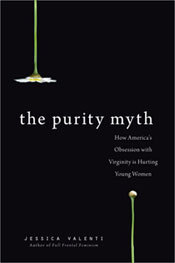My niece flagged this article by Samantha Pugsley and that brought it to my attention. This is the age at which we begin to teach the second Our Whole Lives (OWL) class:
At the age of 10, I took a pledge at my church alongside a group of other girls to remain a virgin until marriage. Yes, you read that right — I was 10 years old.
This kind of thinking is as much our competition as is the hypersexualized culture we float in. Which is worse? Perhaps that depends on each person’s experience:
Sex hurt. I knew it would. Everyone told me it would be uncomfortable the first time. What they didn’t tell me is that I would be back in the bathroom afterward, crying quietly for reasons I didn’t yet comprehend. They didn’t tell me that I’d be on my honeymoon, crying again, because sex felt dirty and wrong and sinful even though I was married and it was supposed to be okay now.
What I despise so about that is that it isn’t even true the first time always has to hurt. The lousiness and the lies in the sex-hating story are fundamental to how it works. What we do in OWL class is fact-based and intended to help each person become a better human.
So, I ask two questions:
- How do we bring the benefits of OWL to more people?
- What other areas of life desperately need this type of humane education?
And a bonus item! This wonderful short book by Jessica Valenti, The Purity Myth. If you’re wondering about how this story hurts girls (and boys) and shapes much of our culture, you could do a lot worse than to pick this book up. Read about it on Jessica Valenti’s website.

